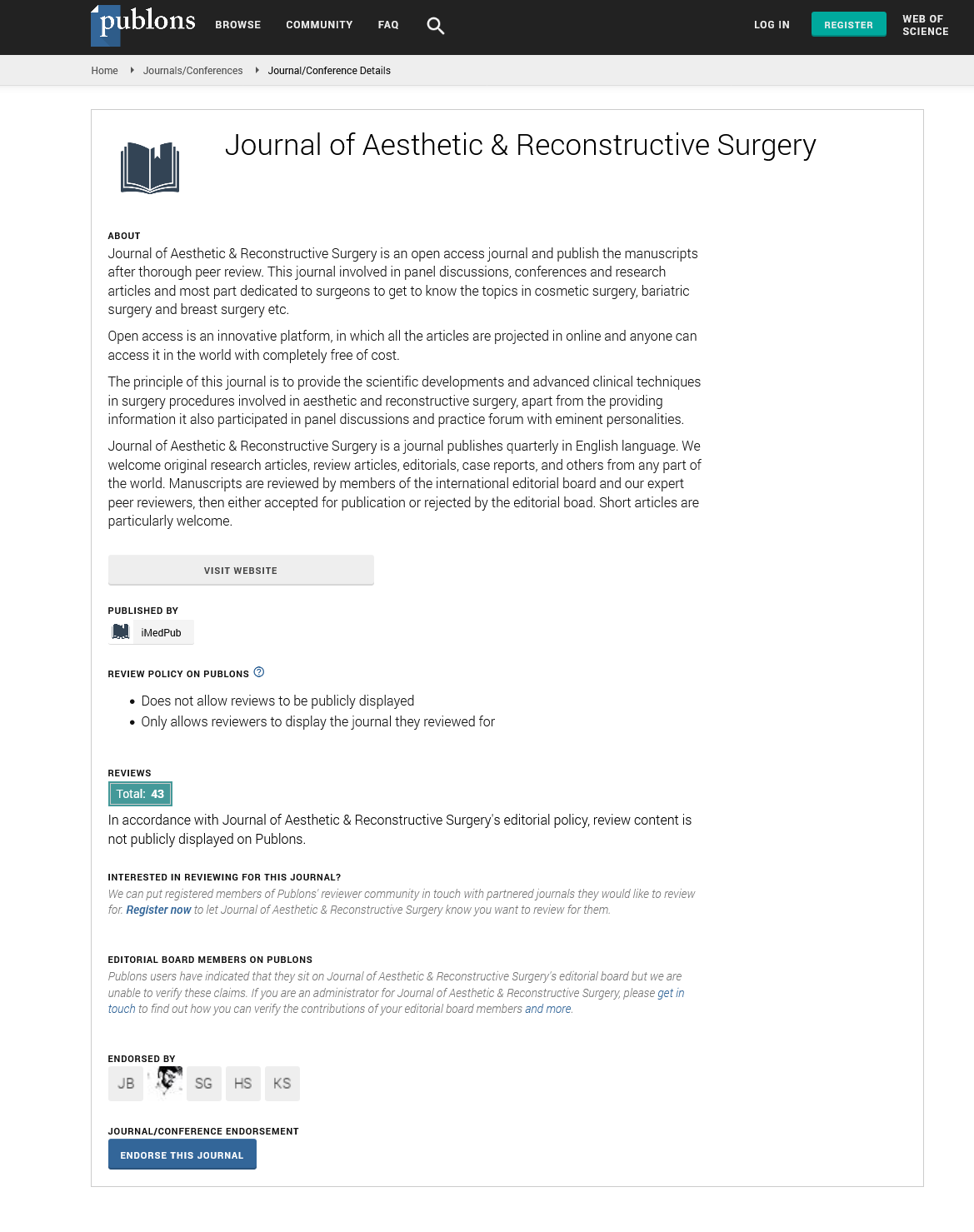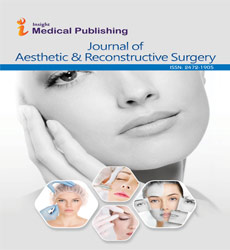Abstract
Prefabricated Flaps for Complex Defects Nasal Reconstruction
Background: Reconstruction of acquired defects of the nose remains one of the most challenging tasks for the plastic surgeons. There are several reconstructive options for nasal defects including primary repair, skin grafts, local flaps, regional flaps, or distant and free flaps. In complex defects, the nasal reconstruction requires restoration of the osseous and cartilaginous framework, altogether with reconstruction of the skin and inner nasal lining. This study aimed to evaluate the use of prefabricated flap in reconstruction of complex defects of the nose.
Methods: A total of 20 patients with different complex nasal defects (involving mucosa, cartilaginous support, and nasal skin) were operated upon, they were divided into 3 groups according to byramicli scoring: Group 1; (9 patients with Type Ib defects), Group 2; (7 patients with Type II defects, Group 3; (4 patients with Type IIIa defects. Prefabricated Flaps used were paramedian forehead flaps, nasolabial flaps, cheek advancement flaps, altogether grafts. Evaluation was done preoperatively and postoperatively through clinical examination, photographing, and patient observer questionnaire for the asthetic results.
Results: Flap survival was excellent in 16 cases and only 4 flaps showed minor complications treated conservatively. The easthetic results were excellent in 13 patients, good in 2 patients, while they were poor in 5 patients. 70% of patients were satisfied with the results.
Conclusion: The use of prefabricated flaps can be successfully used to manage different nasal defects with good results and minimal complications possible. Also, even in the presence of free flap reconstructions, the prefabricated flaps still can be a good alternative technique and have a great role and still compete with the free flaps in reconstruction of the nose.
Author(s):
Sayed K. Salama1*, Abdel Nasser M. El-Nggar2, Mohammed S. Abdel Basset2, Emad M. Hawass2 and Belal A. El-Mobark2
Abstract | Full-Text | PDF
Share this

Google scholar citation report
Citations : 130
Journal of Aesthetic & Reconstructive Surgery received 130 citations as per google scholar report
Journal of Aesthetic & Reconstructive Surgery peer review process verified at publons
Abstracted/Indexed in
- Google Scholar
- China National Knowledge Infrastructure (CNKI)
- Directory of Research Journal Indexing (DRJI)
- WorldCat
- Publons
- Geneva Foundation for Medical Education and Research
- Secret Search Engine Labs
- Euro Pub
Open Access Journals
- Aquaculture & Veterinary Science
- Chemistry & Chemical Sciences
- Clinical Sciences
- Engineering
- General Science
- Genetics & Molecular Biology
- Health Care & Nursing
- Immunology & Microbiology
- Materials Science
- Mathematics & Physics
- Medical Sciences
- Neurology & Psychiatry
- Oncology & Cancer Science
- Pharmaceutical Sciences


